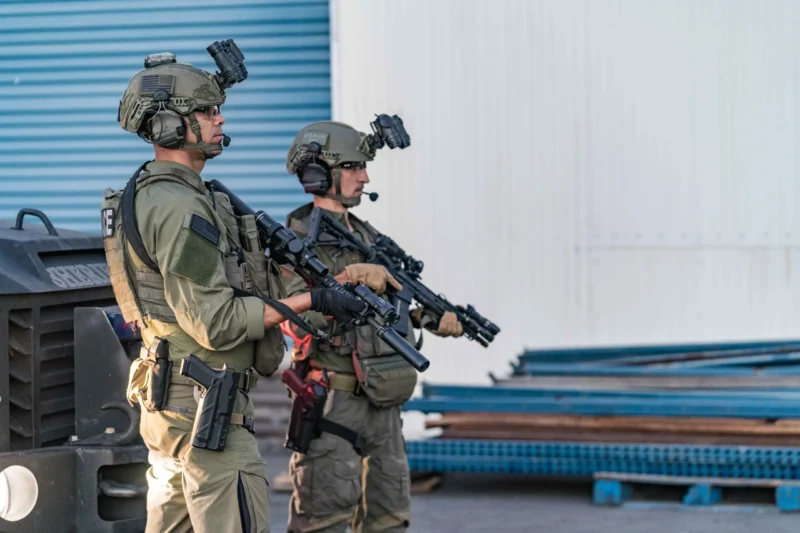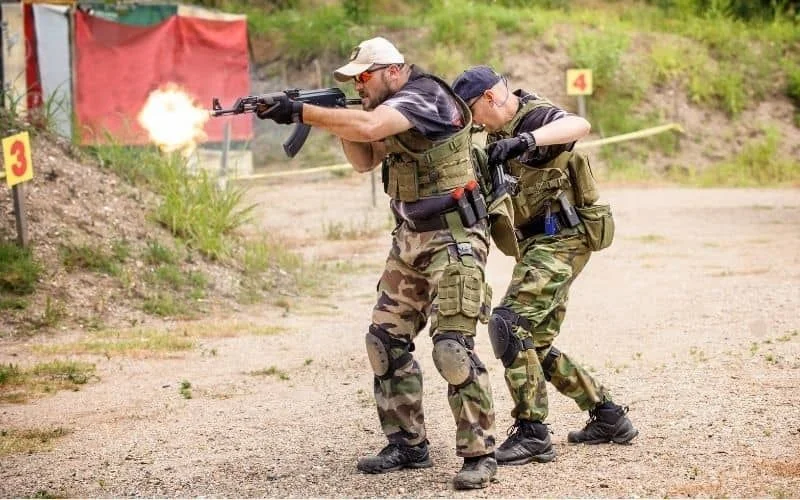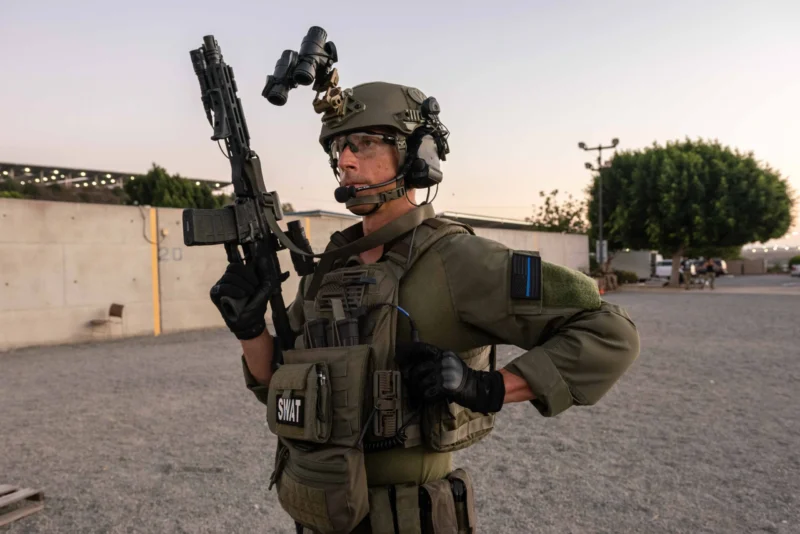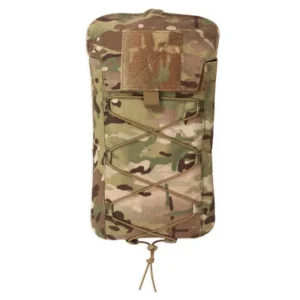Importance of Hydration in Military Training

Military training pushes both the body and mind to their limits. The strict routine of marches, the heavy tactical gear on our shoulders, and the long drills in tough weather can be challenging. One important factor that affects our performance is hydration. Staying properly hydrated can make the difference between performing well and not being ready. Proper fluid intake isn’t just about quenching thirst; it’s a foundational pillar for endurance, resilience, and operational effectiveness. Understanding the role water plays in these high-stakes environments elevates preparation from routine to resilience-driven readiness.
Stay hydrated on the move with the Chase Tactical Large Hydration Pouch, a rugged, compact, and mission-ready option.
What happens to performance when you don’t hydrate properly?
Dehydration reduces endurance, causing fatigue to set in more quickly and diminishing physical stamina. It also disrupts focus, reaction time, and decision‑making, which are crucial in dynamic, high‑pressure scenarios. Even mild fluid loss can increase the risk of heat illness, amplify perceived effort during exertion, and slow recovery between physical tasks.
Importance of hydration in military training

Staying properly hydrated supports attention, physical output, and heat management in military environments. It enhances overall training effectiveness and helps reduce the risk of injury.
1. Maintenance of physical endurance and strength
Hydration supports muscle function and helps prevent cramps during prolonged physical exertion. In hot, humid conditions or under load, water helps ensure that energy systems remain efficient and fatigue is postponed. A well-hydrated soldier maintains pace and stamina far more consistently.
2. Thermoregulation and prevention of heat-related illnesses
Sweating is the body’s natural cooling system. Without adequate hydration, this mechanism fails, leading to an increase in core temperature. That escalates the risk of heat exhaustion or heat stroke, especially in full combat gear or under scorching training conditions. Staying hydrated allows sweat production to continue unimpeded, safeguarding heat balance.
3. Cognitive sharpness and decision-making
Staying hydrated is important for both your body and mind. Even slight dehydration can slow down your reaction time, reduce your awareness of what’s happening around you, and affect your ability to make quick decisions. For military personnel, where choices can lead to success or serious problems, keeping the right fluid balance is essential.
4. Recovery and injury prevention
Staying hydrated helps your tissues, muscles, joints, and connective structures recover quickly after exercise. Proper hydration improves blood flow and nutrient delivery, which reduces muscle soreness, aids recovery, and lowers the risk of strains or sprains caused by tired movements.
5. Immune support and overall resilience
Rigorous training stresses the immune system. Hydration supports lymphatic flow and toxin clearance, helping the body resist infections and maintain optimal energy levels. In high-density environments, such as barracks or field settings, this boost to resilience is vital.
How to Optimize hydration during training?

Staying hydrated during military training is about more than just drinking water. Timing, electrolyte balance, food choices, and access to fluids all play critical roles. Here’s how to hydrate the right way.
Hydration before, during, and after
- Before you begin each day, ensure you have sufficient fluids. A hydrated starting point supports endurance and wards off early fatigue during training.
- During: Sip consistently rather than downing large amounts infrequently. Small, regular intakes help sustain performance and reduce stomach distress.
- After: Post Military exercise rehydration helps restore balance, especially when sweat losses are high. Combining fluids with electrolytes enhances absorption and replenishment of essential nutrients.
Replenish Electrolytes
Water alone may not suffice after heavy sweating. Sodium, potassium, and magnesium lost with sweat must be replenished. Electrolyte-enhanced beverages or oral rehydration solutions help restore balance and prevent hyponatremia, thereby enhancing the effectiveness of rehydration.
Monitoring hydration status
Simple checks, urine color, frequency, and thirst cues, offer real-time feedback. Healthy hydration usually results in light yellow urine and regular elimination. Training planners can also schedule regular fluid breaks and use buddy checks to ensure intake stays on track.
Incorporating hydrating foods
Fruits like watermelon, oranges, and grapes, plus hydrating vegetables and broths, contribute to overall fluid intake. These foods help hydration and supply valuable nutrients, particularly useful when portable fluids are limited in field conditions.
Use Tactical Hydration Gear for Easy Access
Using hydration bladders, canteens, or tactical packs allows you to keep water nearby. This is important when you can’t make frequent stops during movement or tactical operations. Easy access to water lets you sip without interrupting your training.
Conclusion
Staying hydrated is crucial in military training. It helps improve physical performance, mental clarity, prevents injuries, and speeds up recovery. Hydration is an essential support that keeps trainees strong, focused, and prepared. Although water seems simple, its effects during training are significant.
Frequently Asked Questions
How much water is enough during intensive field training?
Drink approximately 2 to 3 liters of water daily. Adjust this amount based on the weather, your level of activity, and the amount of sweat you produce. Taking small sips often while you are active will help keep you balanced.
Can energy or sports drinks replace water?
They can help replenish electrolytes and offer a quick energy boost, but water should still make up the bulk of hydration, especially for long-duration training.
Is thirst a reliable guide?
Thirst often lags behind actual hydration needs. Relying on regular sipping, urine monitoring, and scheduled breaks is a safer approach.
How do I handle hydration when water isn’t immediately accessible?
Plan to use hydration packs or bladders, and prioritize high-water foods and beverages early in the day to help prevent dehydration.
Does caffeine in coffee or tea affect hydration?
In moderate amounts, caffeine has a slight diuretic effect. Coffee and tea can help with hydration, but be sure to drink enough water as well.

